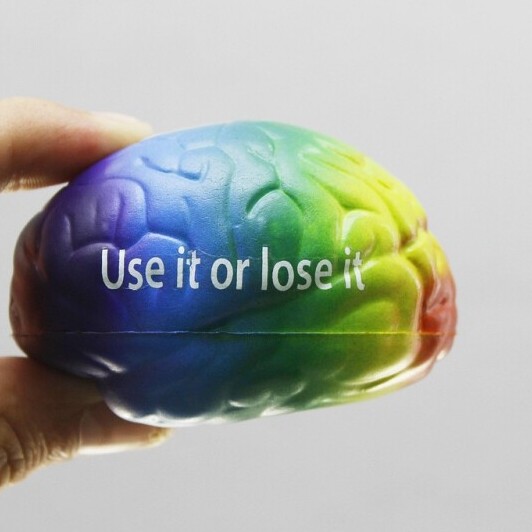Emotional intelligence has been making waves for a while now, but what exactly is it? At its core, emotional intelligence, or EQ, is all about navigating and managing your emotions and the emotions of those around you. It’s broken down into five key components: self-awareness, self-regulation, motivation, empathy, and social skills. Mastering these can make a big difference in how you handle life’s curveballs.
Imagine being as cool as a cucumber in stressful situations or understanding what makes others tick. That’s where emotional intelligence comes into play. It’s not just about keeping calm; it’s about understanding and using emotions to your advantage. This can translate to better relationships, smoother work environments, and a more fulfilling life overall.

A quick history lesson: Emotional intelligence isn’t a new concept. In fact, it was first brought into the limelight by psychologists Peter Salovey and John D. Mayer back in the ’90s. However, it gained serious street cred after Daniel Goleman published a book on it. And now, in our super-connected digital world, its importance is only growing.
Why the buzz now more than ever? With all the constant digital noise, developing emotional intelligence is like a breath of fresh air. It can help you cut through all the chatter and connect on a deeper level, both online and offline. Plus, in a world that’s obsessed with metrics and data, having strong EQ can set you apart both personally and professionally.
The Best Online Courses for Emotional Intelligence Enhancement
Online courses can be a game-changer when it comes to boosting your emotional intelligence. No need to leave the comfort of your couch—these platforms bring knowledge straight to you. Coursera and LinkedIn Learning have a lineup of courses that cover everything from basic EQ principles to advanced emotional management techniques.
Picking the right course is kind of like finding the perfect playlist. You have to sift through the options to figure out what speaks to you. Think about your learning style: do you prefer bite-sized videos, or do you want in-depth discussions with quizzes? Look out for courses by recognizable instructors or institutions to ensure you’re not just getting random advice.

Details matter. Check for course duration and see if they offer certificates—that little piece of paper can be a big deal for your resume. If you’re someone who thrives on feedback, opt for courses with interactive components like forums or peer reviews.
Real stories from past students can be insightful and motivating. Many courses share testimonials from folks who’ve leveled up their EQ game and how it’s impacted their lives. Reading these can give you a better idea of what to expect and can be just the nudge you need to commit.
Lastly, don’t be shy about reaching out to course providers with any questions. Most are eager to help potential students find the right fit for their goals. So dive into those course offerings and set yourself on a path to emotional brilliance!
Interactive Tools and Apps: Practicing Emotional Intelligence Daily
Sometimes, the best way to get better at emotional intelligence is by practicing a little bit every day, and that’s where interactive tools and apps come in. They’re like your pocket-sized EQ coaches, offering a helping hand whenever you need it.
Take Moodpath, for example. This app does more than track your feelings — it helps you identify patterns and triggers. It’s like having a personal diary that responds and gives feedback. Another great app is Headspace. Known mostly for meditation, it can also guide you through breathing exercises to help manage your emotions better.

These digital tools usually come with features designed to boost your self-awareness and help with emotional regulation. You might find guided journaling exercises, mood tracking logs, or even on-the-spot relaxation techniques. Regular use can make it easier to spot when you’re slipping into old habits and catch yourself before you react in ways you’d rather not.
Adding these exercises into your day-to-day isn’t hard. It can be as simple as checking in with your app during your morning coffee or letting it guide you through a relaxation session before bed. Keeping it consistent will build your emotional muscle over time.
Real users love sharing their experiences through ratings and reviews. Many report feeling more in control and having a better understanding of their emotions after using these apps regularly. If you’re more into community feedback, join in the discussions on app forums to see what others are saying.
Web-based Workshops and Webinars: Learning from Experts
Learning emotional intelligence from the pros doesn’t require a plane ticket or conference fees. Enter web-based workshops and webinars, where you get to soak up knowledge directly from industry rockstars and seasoned psychologists, all from your living room.
These sessions often feature live interactions, so you’re not just a passive listener. You can ask questions and engage in discussions, which can be a major bonus if you like real-time learning. It makes the experience as close to a face-to-face class as possible.

When picking a webinar, dive into the background of the speakers. Credentials matter, as does their real-world experience with emotional intelligence. Are they authors of reputable books? Have they been featured in renowned publications or academic journals? These little checks can save you from investing your time in something that isn’t worth it.
The beauty of workshops is the tailored content. They often dive into niche topics like empathy in leadership or managing stress in high-paced environments, giving you tools targeted towards your specific interest areas. This specialized approach means you can walk away with practical ideas that apply to your life immediately.
Engaging live means access to Q&A segments, where you can clarify doubts or seek advice on situations you’re grappling with. This can lead to deeper insights and sometimes connections that stretch beyond the screen.
For many, jumping into these webinars is about more than just knowledge; it’s about building networks. They can serve as the first step in forming bonds with like-minded individuals who value growth and self-improvement.
Communities and Forums: Collaborative Learning and Support
Joining online communities focused on emotional intelligence is like opening the door to a world full of shared experiences and lessons. Platforms like Reddit and Quora host a treasure trove of discussions where folks from all walks of life come together to share their stories and discoveries.
These spaces are gold mines for learning how emotional intelligence plays out in real-world scenarios. From the complexities of personal relationships to dealing with workplace challenges, there’s always someone who’s walked a similar path and can offer insights.

Getting involved is simple. Jump into discussions that interest you, but don’t just be a spectator. Share your perspectives too—it’s a two-way street. By actively engaging, you’re not only gaining insights but also contributing to the collective knowledge of the group.
Diverse viewpoints can lead to a deeper understanding, so embrace them. Each person’s story is a learning point, showing how different situations call for different emotional responses. It’s eye-opening how varied our emotional journeys can be!
Maintaining a respectful tone in these forums is key. Emotional topics can be sensitive, and keeping conversations constructive helps everyone feel safe to share. Adding your voice to a respectful and supportive community can dramatically boost your emotional intelligence journey.